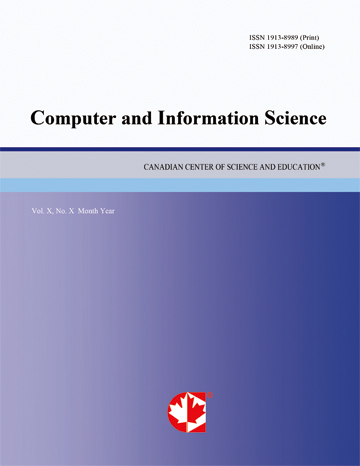Collision Detection in Wireless Sensor Networks Through Pseudo-Coded ON-OFF Pilot Periods per Packet: A Novel Low-Complexity and Low-Power Design Technique
- Fawaz Alassery
- Walid Ahmed
- Mohsen Sarraf
- Victor Lawrence
Abstract
Sensor nodes in Wireless Sensor Networks (WSNs) operate with limited power resources such as small batterieswhich are difficult to be either recharged or replaced in some environments when depleted. Power consumptionrepresents one of the most constraints impact the design of WSNs, leading to various protocols and algorithmsaimed at minimizing the power consumption and extending batteries' lifetime. Sensor nodes in WSNs transmittheir periodic packets continuously to central nodes (receivers) which are responsible for decoding packets andtransmitting them to other communication networks. In addition, sensors usually follow various MAC strategieswhich allow accessing to wireless communication channels. However, sensors may attempt to access thewireless channels at the same time, potentially, leading to collisions among multiple nodes. In fact, central nodesin WSNs most often consume a large amount of power due to the necessity to decode every received packetregardless of the fact that the transmission may suffer from packets collision which impede the networkperformance. Therefore, in the receiver side of WSNs current collision detection mechanisms have largely beenrevolving around direct demodulation and decoding of received packets and deciding on a collision based onsome form of parity bits in each packet for error control. From information theoretic prospective full decoding ofreceived packets with error control bits at central nodes can achieve an efficient usage of network capacity,however, such an approach represents a major burden on power-constrained sensors. This drawback comes fromthe need to expend a significant amount of energy and processing complexity at sink nodes in order tofully-decode a packet, only to discover the packet is illegible due to a collision. In this paper, we propose a morepractical power saving approaches which achieve a significant power saving with low-complexity at the expenseof low throughput losses. Based on studying the statistics of received packets, central nodes can make a fastdecision to detect a collision without the need for full-decoding of the whole received packets. Our novelapproaches not only reduces processing complexity and hence power consumption, but it also reduces the delayincurred to detect a collision since it operates on only a small number of IQ samples in the beginning of areceived packet. In such a paradigm, our approaches operate directly at the output of the receiver’sAnalog-to-Digital-Converter (ADC) and eliminate the need to pass the corrupted packets through the entiredemodulator/decoder line-up. The performance gain of our proposed approach is illustrated through thecomparison between the computational complexity of our Statistical Discrimination (SD) approaches and someexisting Full Decoding (FD) algorithms(note 1). Our results show that the SD approaches has significant powersavings and low computational complexities over existing FD algorithms with low False-Alarm and Missprobabilities, which qualify our SD approaches to be considered as reliable collision detection mechanisms inWSNs. We also show how to tune various design parameters in order to allow a system designer multipledegrees of freedom for design trade-offs and optimization.- Full Text:
 PDF
PDF
- DOI:10.5539/cis.v8n3p13
Journal Metrics
WJCI (2022): 0.636
Impact Factor 2022 (by WJCI): 0.419
h-index (January 2024): 43
i10-index (January 2024): 193
h5-index (January 2024): N/A
h5-median(January 2024): N/A
( The data was calculated based on Google Scholar Citations. Click Here to Learn More. )
Index
- BASE (Bielefeld Academic Search Engine)
- CNKI Scholar
- CrossRef
- DBLP (2008-2019)
- EuroPub Database
- Excellence in Research for Australia (ERA)
- Genamics JournalSeek
- GETIT@YALE (Yale University Library)
- Google Scholar
- Harvard Library
- Infotrieve
- Mendeley
- Open policy finder
- ResearchGate
- Scilit
- The Keepers Registry
- UCR Library
- WJCI Report
- WorldCat
Contact
- Chris LeeEditorial Assistant
- cis@ccsenet.org
